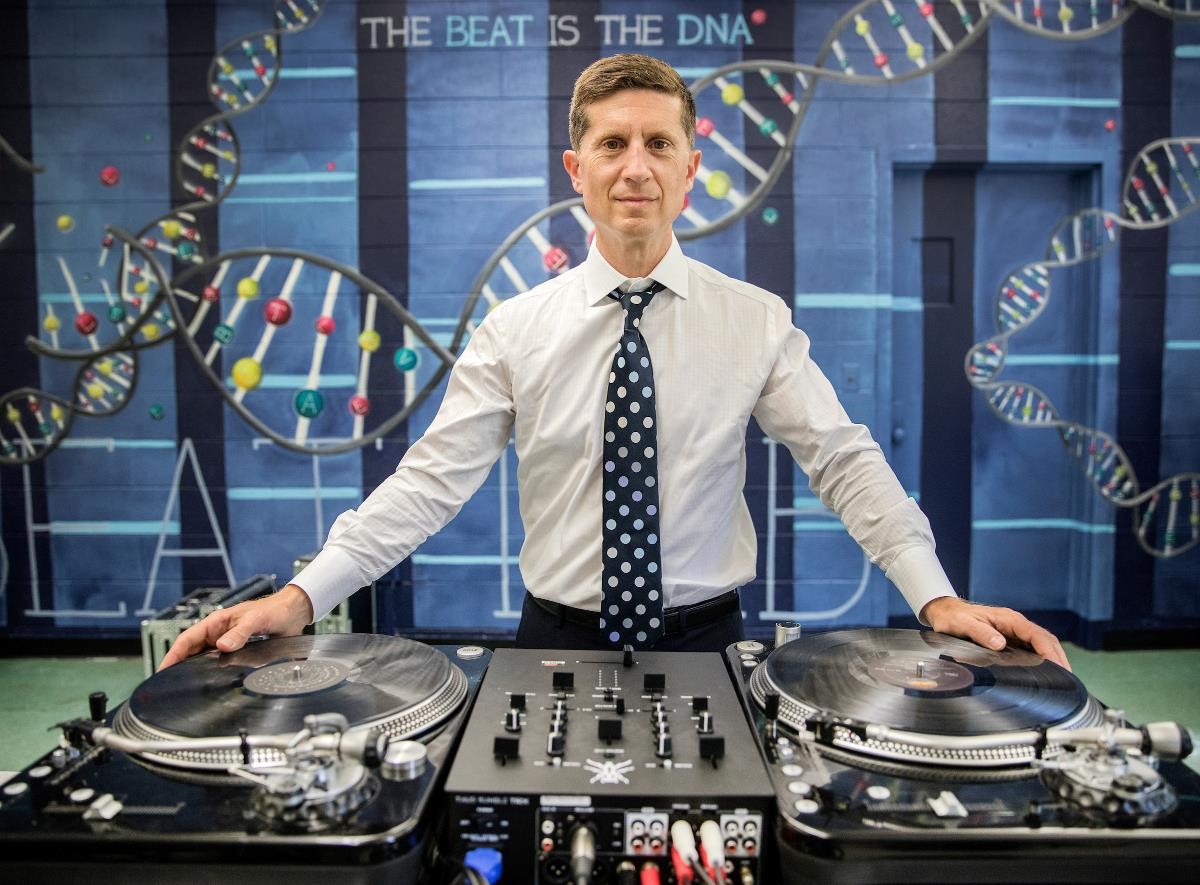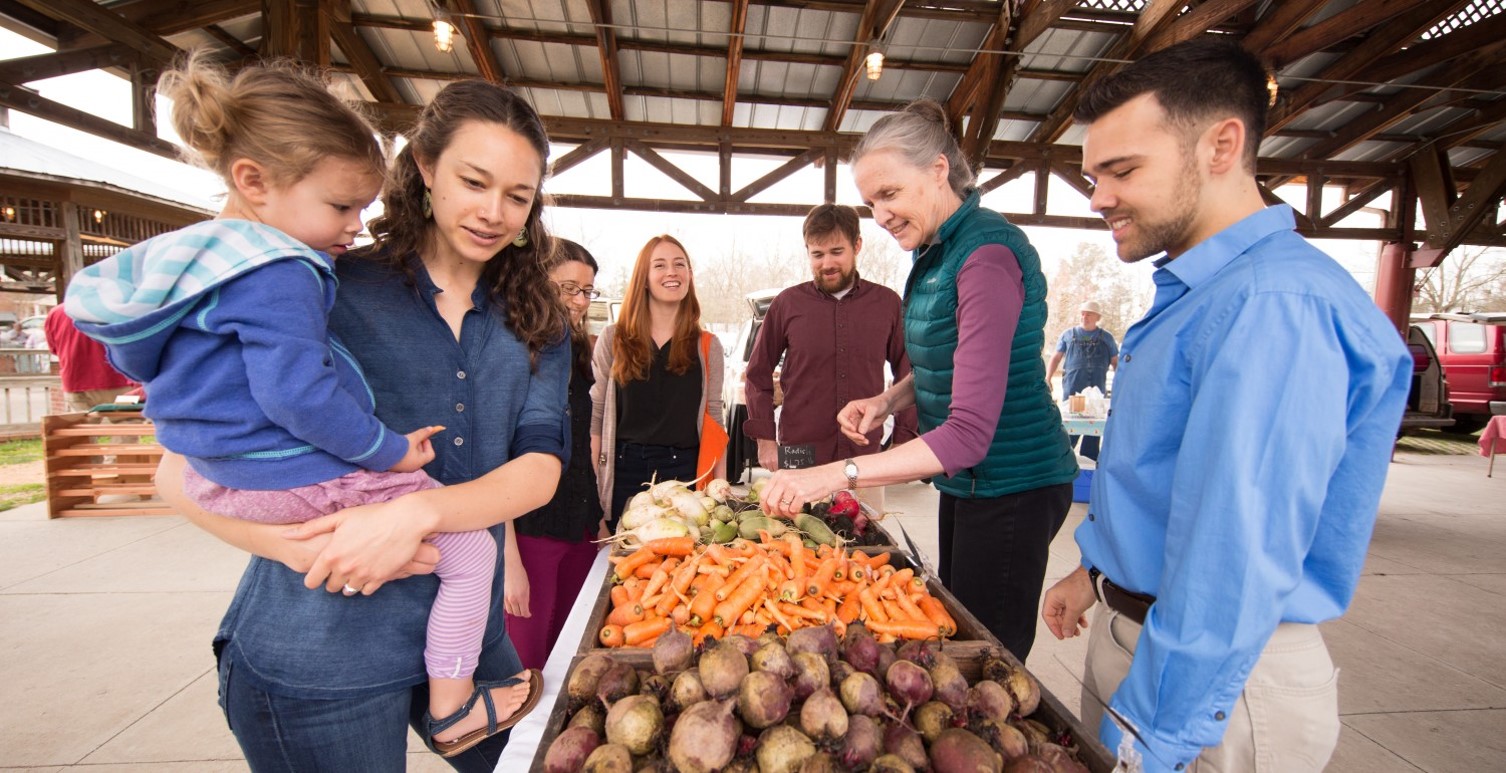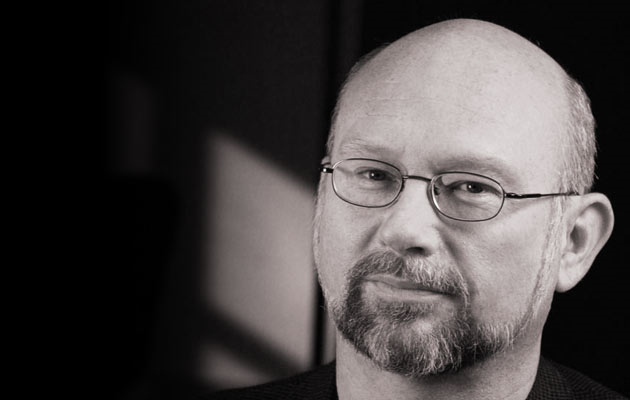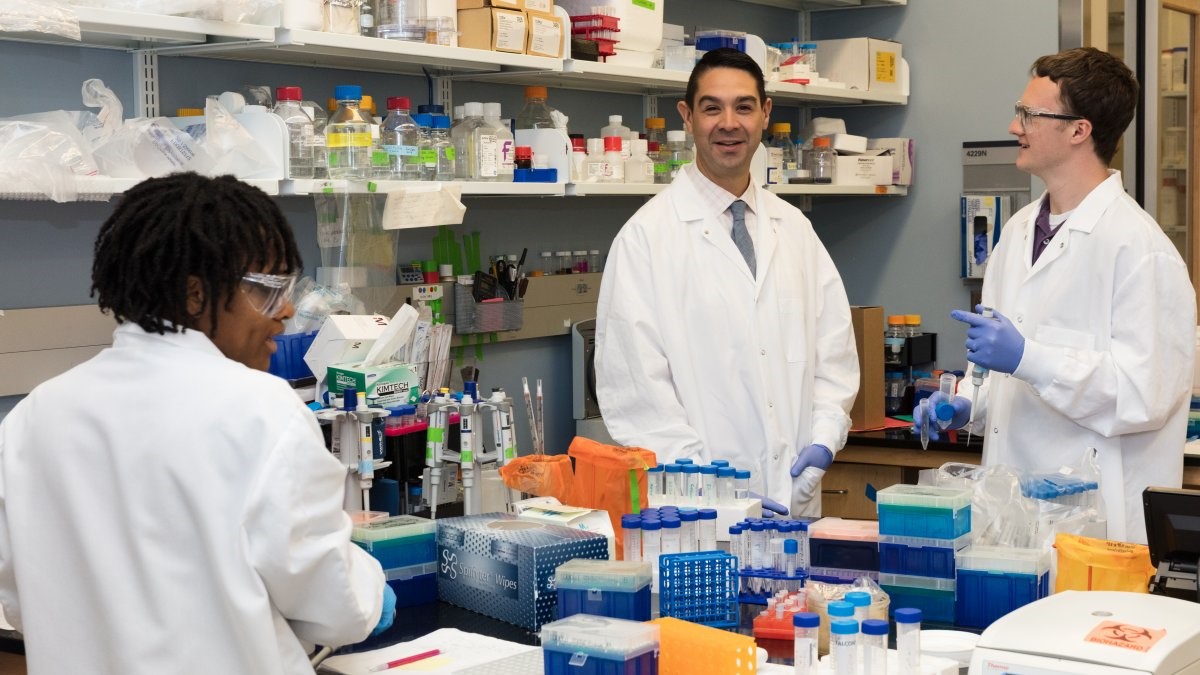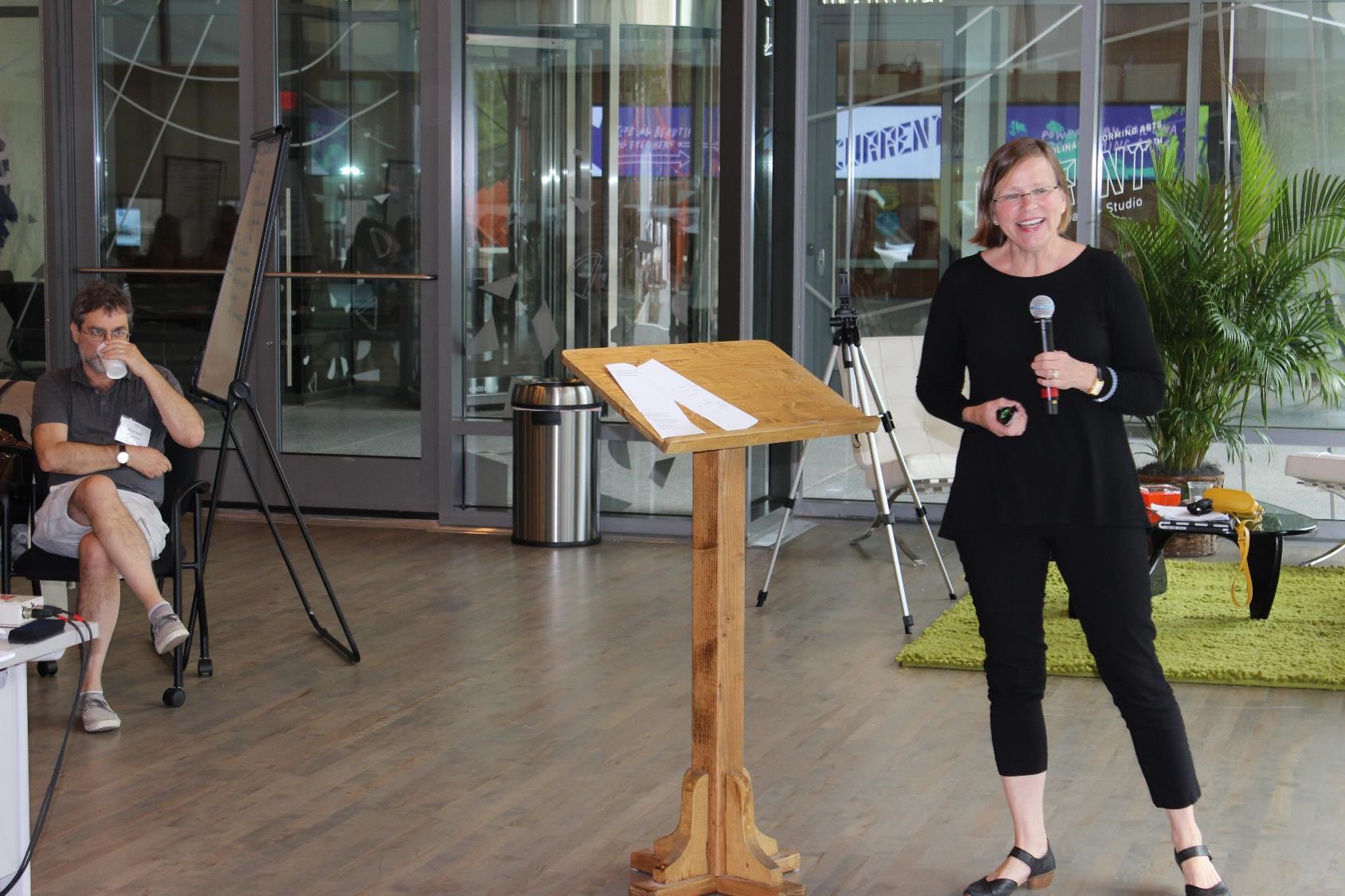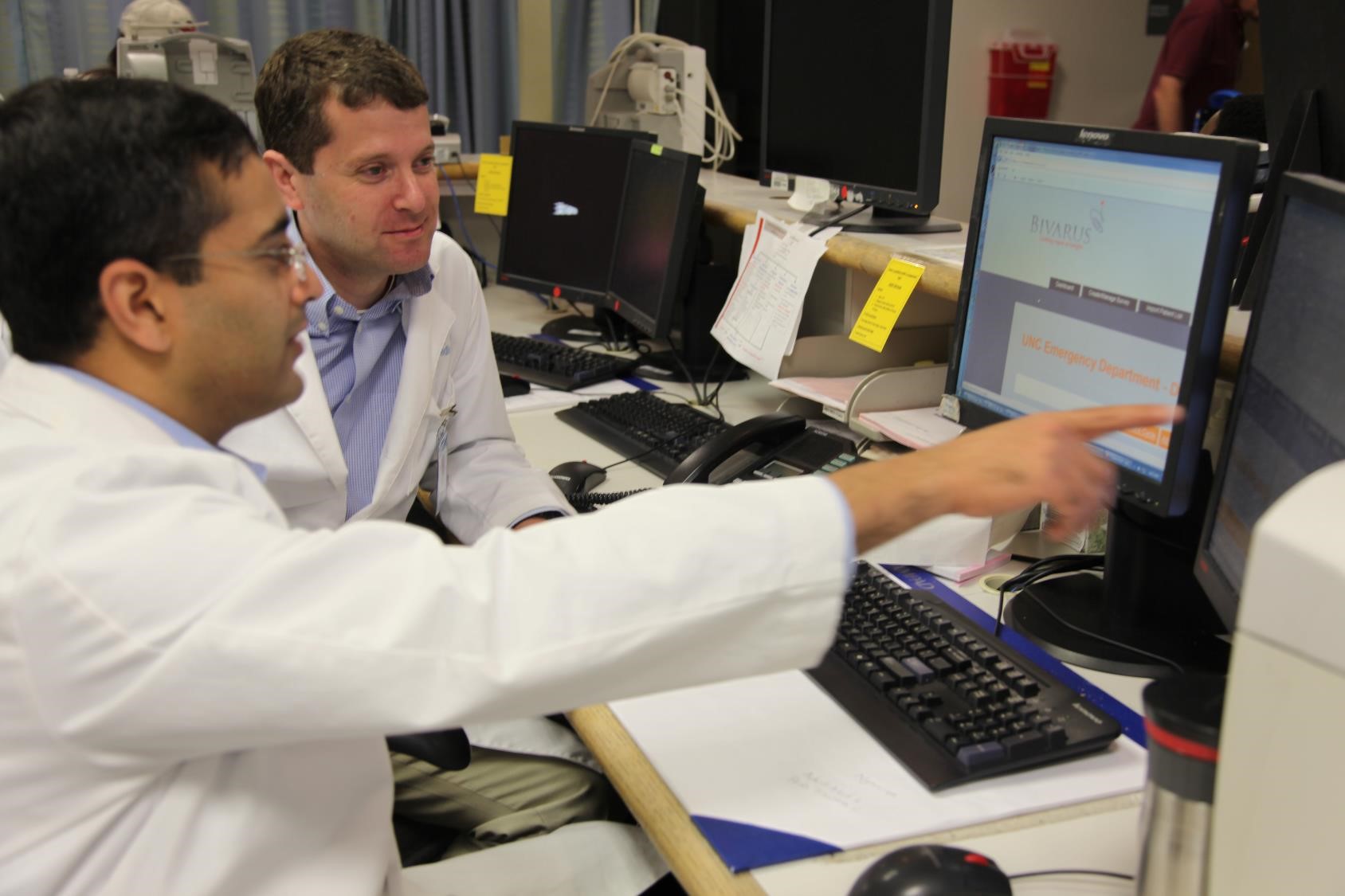The accidental entrepreneurs
Celebrating 10 years of the UNC Faculty Entrepreneurship Workshop
Published June 1, 2018
Every spring, small groups of the most enterprising faculty at UNC-Chapel Hill experience flashbacks of sitting in class as undergraduates. While participants in the Chancellor’s Faculty Entrepreneurship Workshop, which is sponsored by Chancellor Carol Folt and led by Innovate Carolina, these researchers and teachers find themselves in the shoes of the students they instruct: showing up eager to learn, collaborating on group projects and working feverishly toward final presentations.
This flipped classroom experience is relatively familiar territory for Carolina faculty. However, the subject of this crash course – entrepreneurship – can feel like entirely new terrain.
After all, faculty have more-than-full-time teaching and research responsibilities that consume their attention. Entrepreneurship is something they may choose to wade into gradually as time allows. Once they’re immersed, however, the transition to faculty entrepreneurs can become an experience of pure serendipity that leads them down exciting, reward-filled paths that they can’t predict.
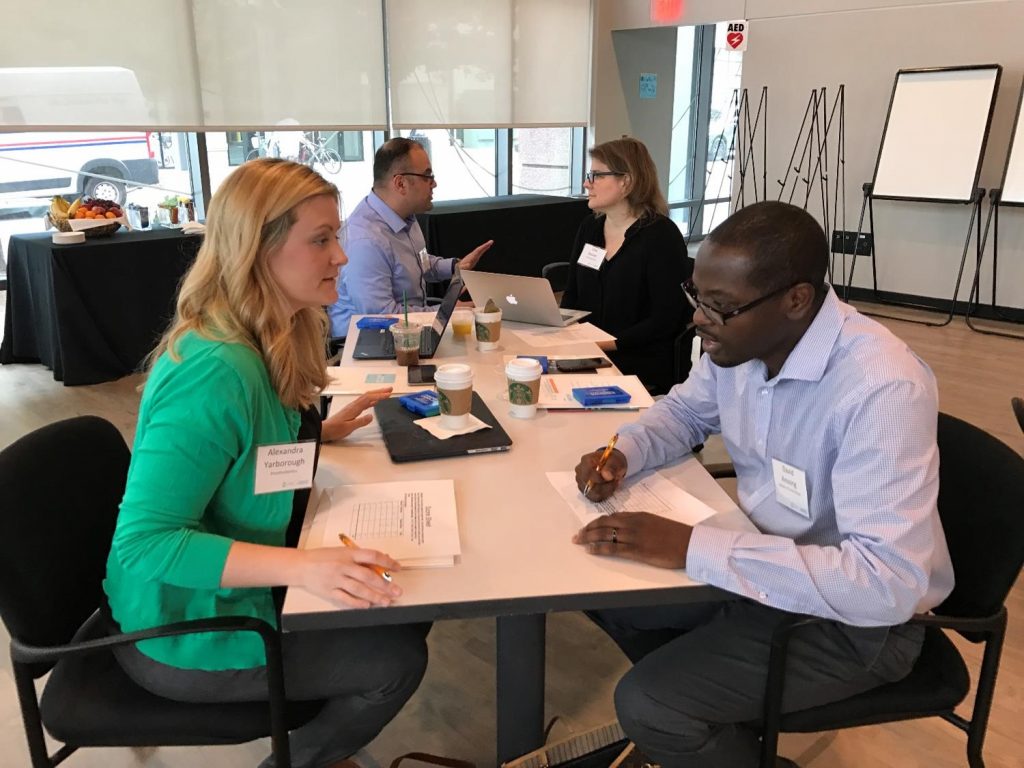
“What in the world am I doing emailing Uzbekistan and talking to rappers in Egypt?” asked Mark Katz, Ruel W. Tyson, Jr. Distinguished Professor of Humanities and Director of the Institute for the Arts and Humanities, who also founded the international hip-hop diplomacy program Next Level. “That’s not what I thought I would be doing five years ago. This has not be a straightforward journey, but it’s been a gloriously winding journey.”
10
YEARS OF FACULTY WORKSHOPS
250+
FACULTY ALUMNI SINCE 2009
2.5
DAYS OF LEARNING
27
FACULTY PARTICIPANTS IN 2018
12
UNC DEPARTMENTS REPRESENTED IN 2018
21
PRESENTERS AND COACHES
7
JUDGES
15
SEMI-FINAL PITCHES
6
FINAL PITCHES
Katz is a 2010 alumnus of the faculty workshop, which celebrated its 10th anniversary in May. His subsequent work with Next Level led him to create a series of international workshops that use hip-hop to promote entrepreneurship and cultural understanding. The program has received $5 million in grants from the U.S. Department of State and hosted workshops in 21 countries since 2013.
“I know some of my colleagues probably hear the word entrepreneurship and feel an allergic reaction because they think, ‘That’s not what I do. I’m an artist or a humanities scholar, so why does that matter?'” said Katz. “But, in fact, it’s really a mindset and a way of thinking that can be applied to any area. It doesn’t matter whether you’re a scholar and have no intention of creating a business or venture of any sort. It can really help you simply in your thinking about how you do your scholarship, teaching and service.”
It’s that kind of broad thinking about the entrepreneurial journey that sparked optimism in Ronit Fraiman, assistant professor of applied physical sciences and a faculty participant in the 2018 event. “The most important thing I learned in the workshop is that entrepreneurs come in all shapes and sizes and that there are different ways and paths to be an entrepreneur,” said Fraiman. “It was inspiring to hear about the journey of other colleagues and realize that, after all the ups and downs, the wins and the losses, it will all be worth it in the end – and one day my dreams can also become a reality.”
WORKSHOP SNAPSHOTS
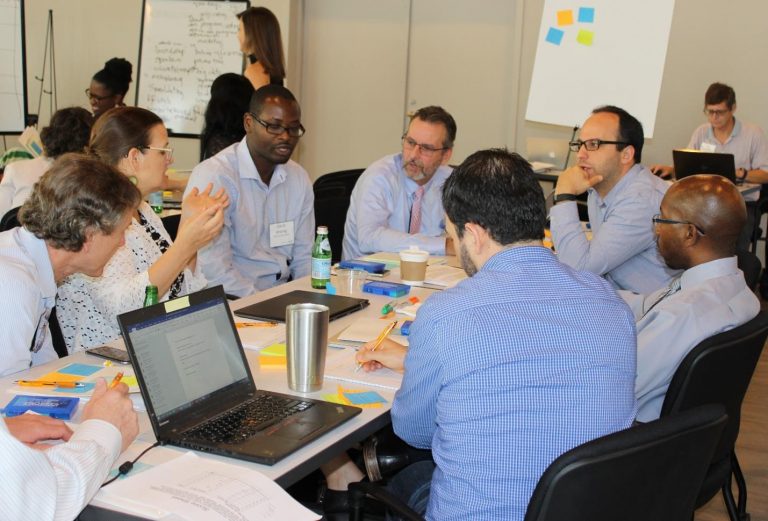
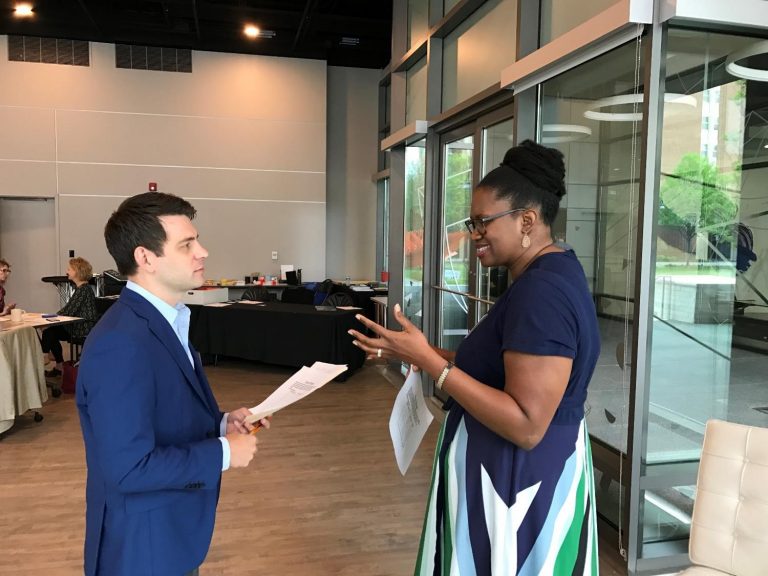
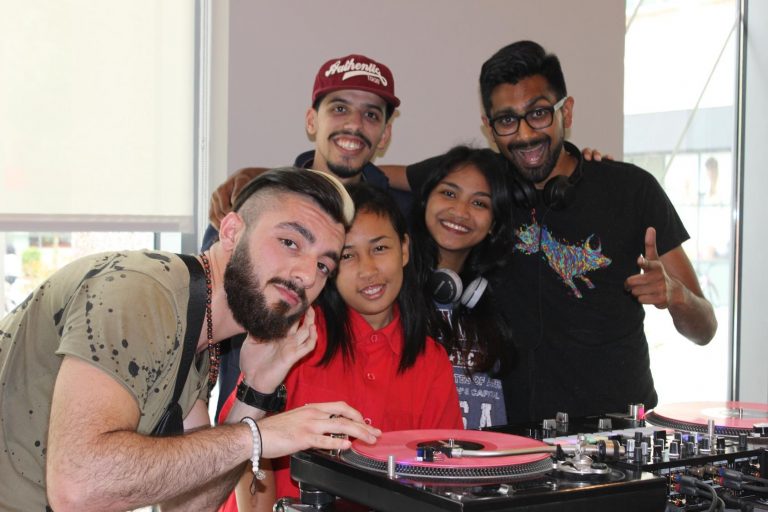
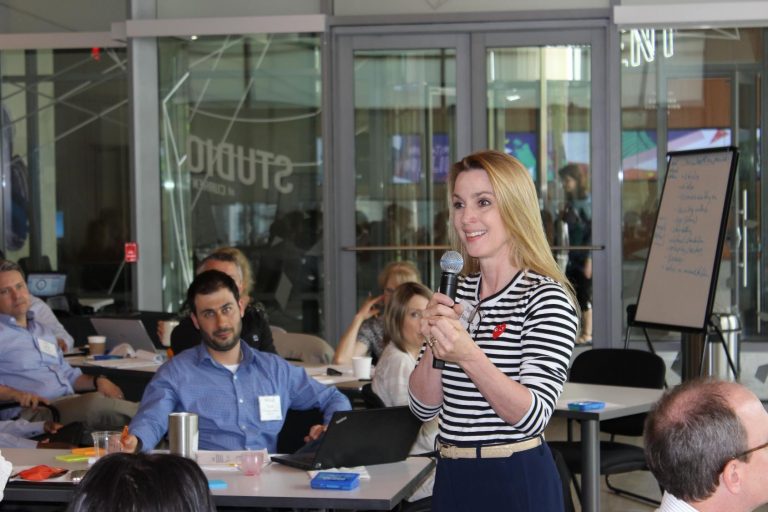
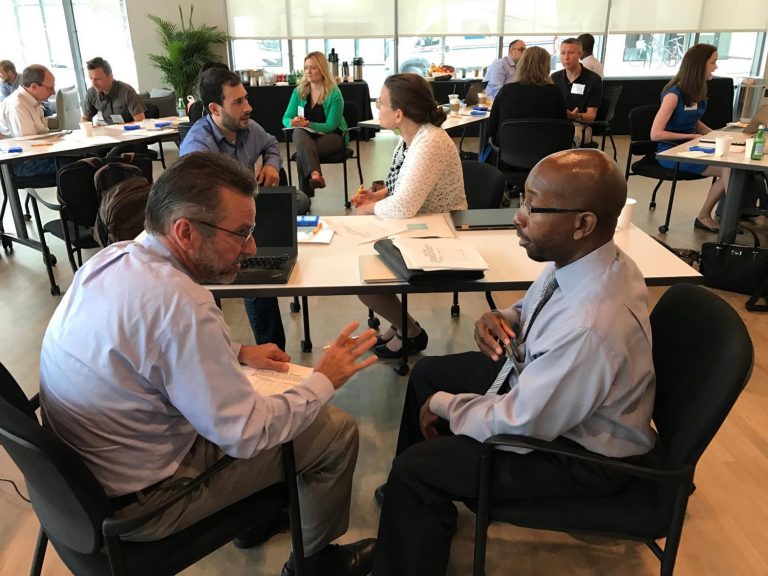
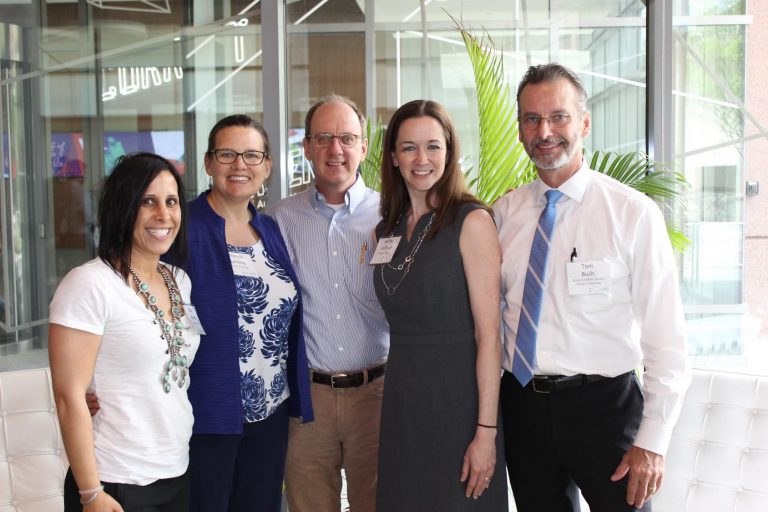
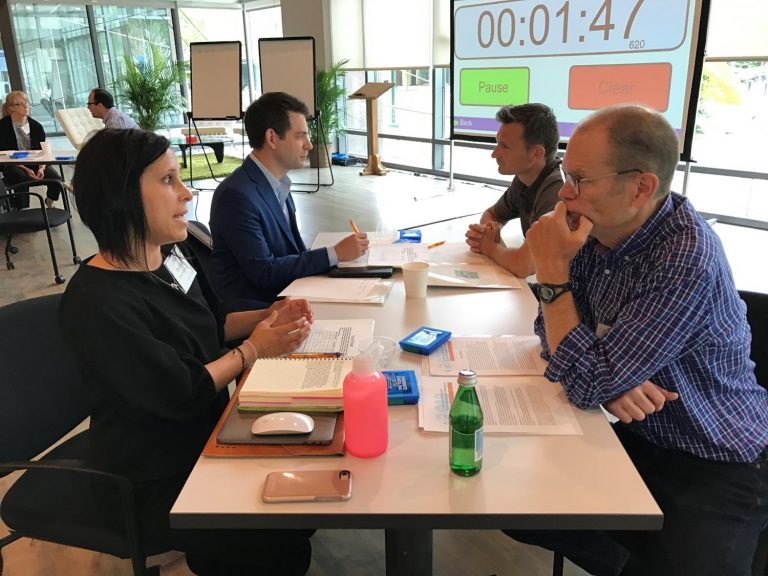
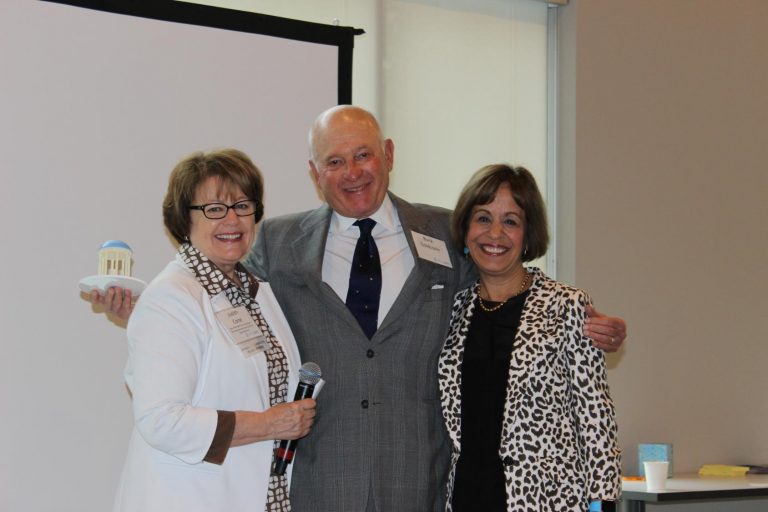
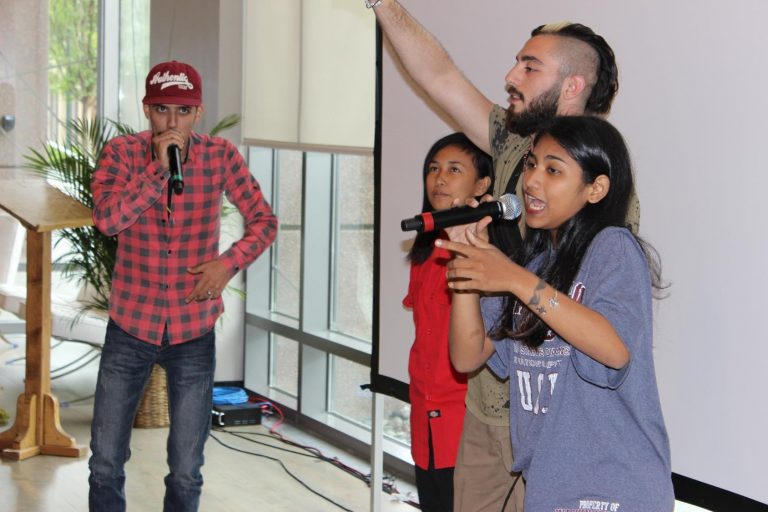
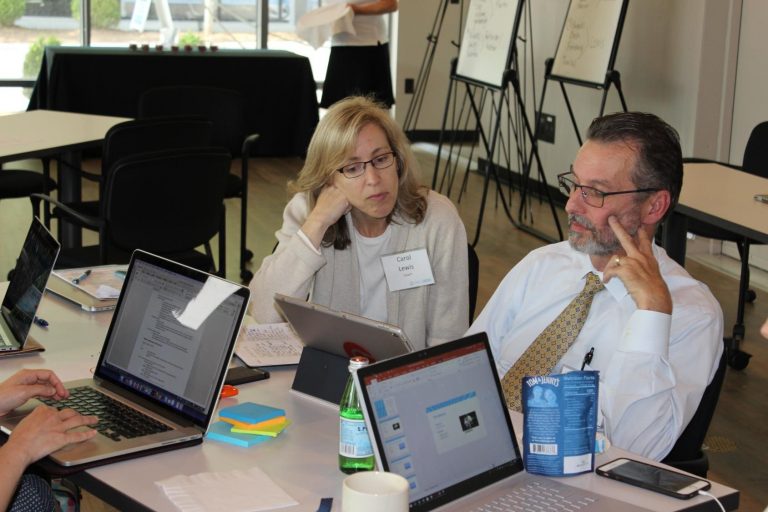
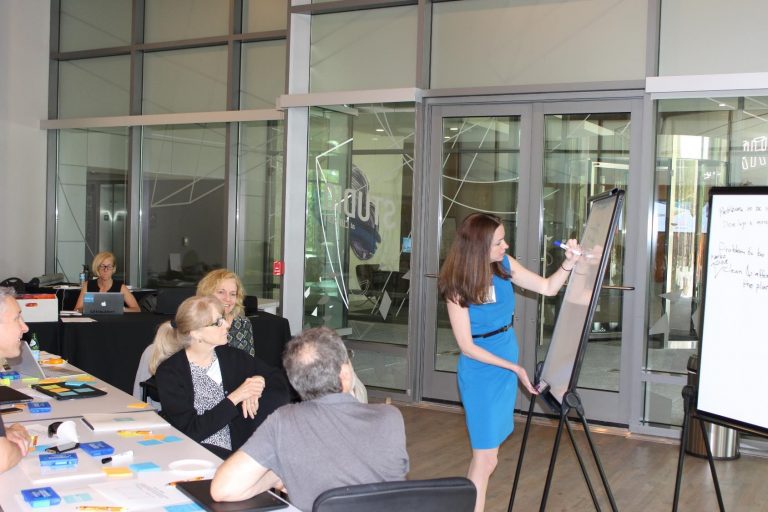
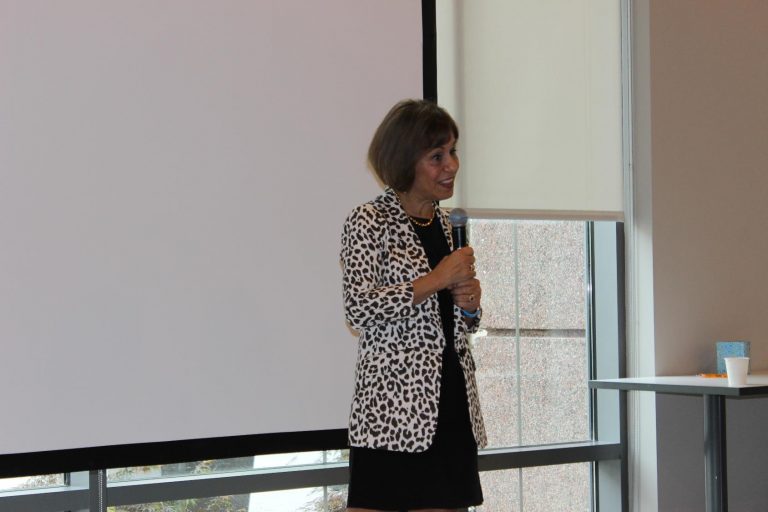
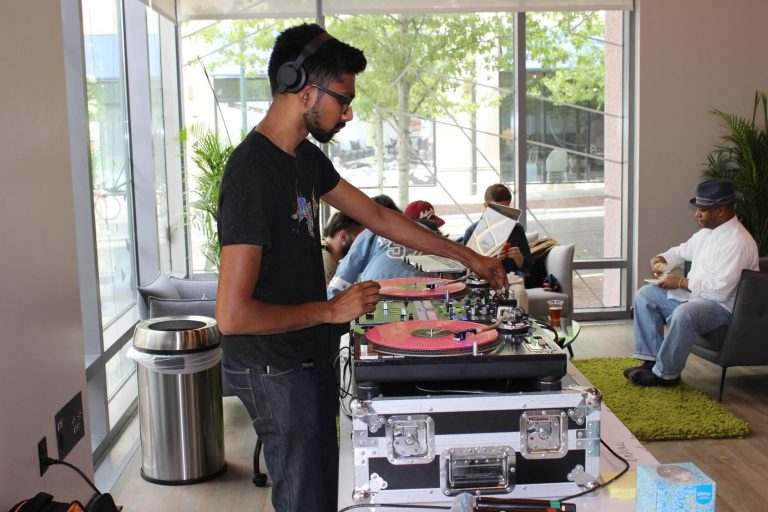
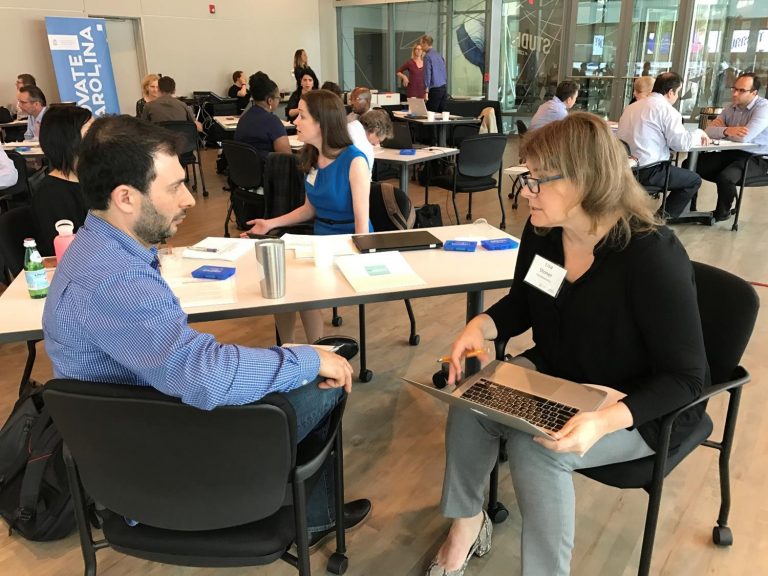
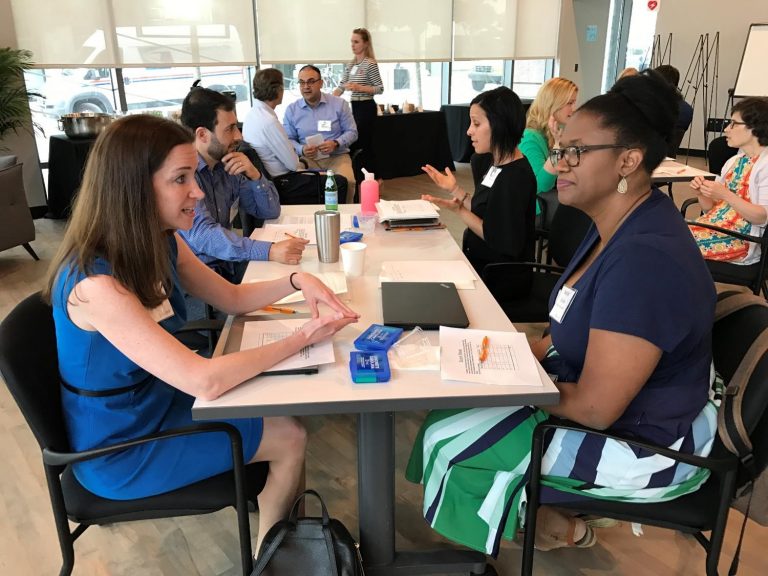
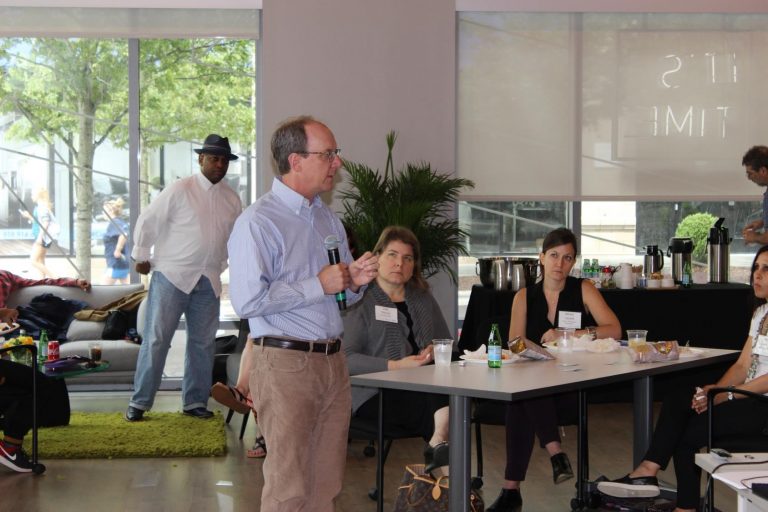
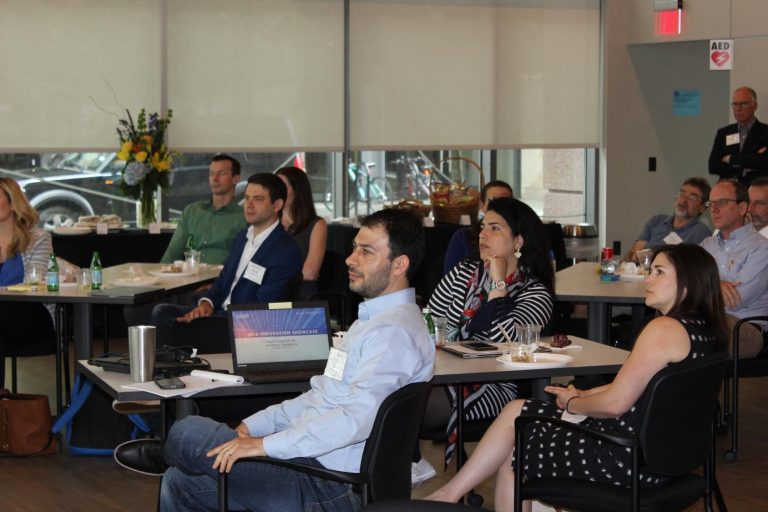
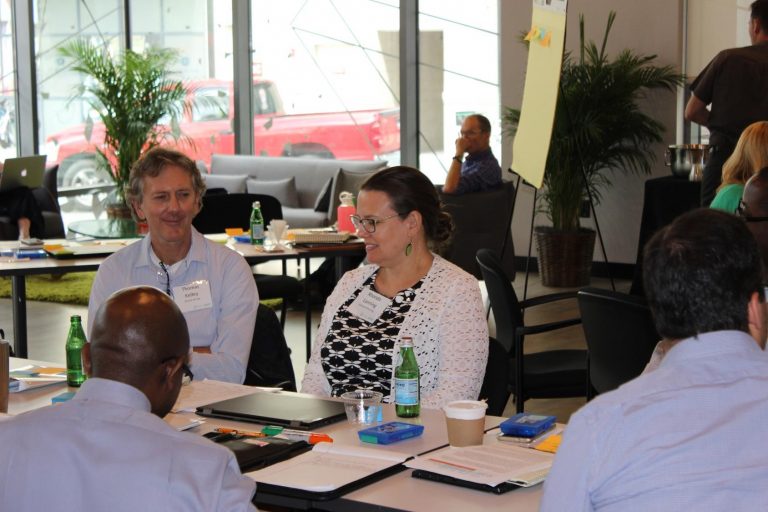
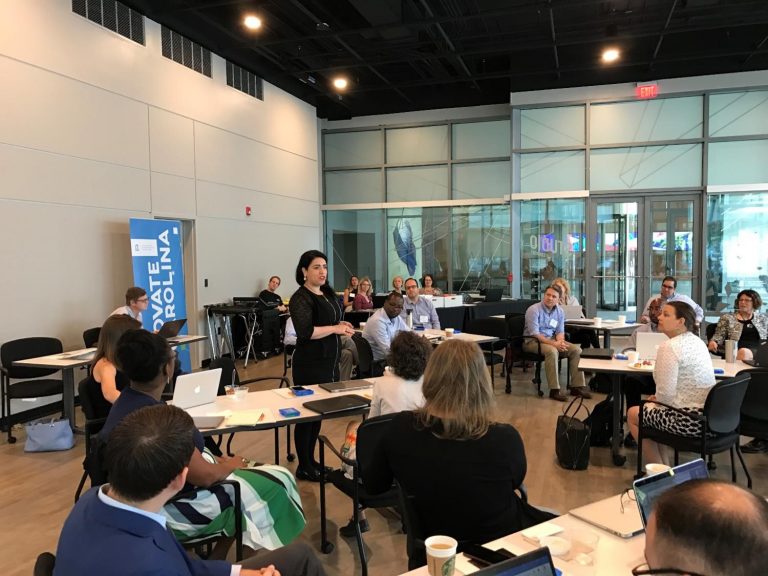
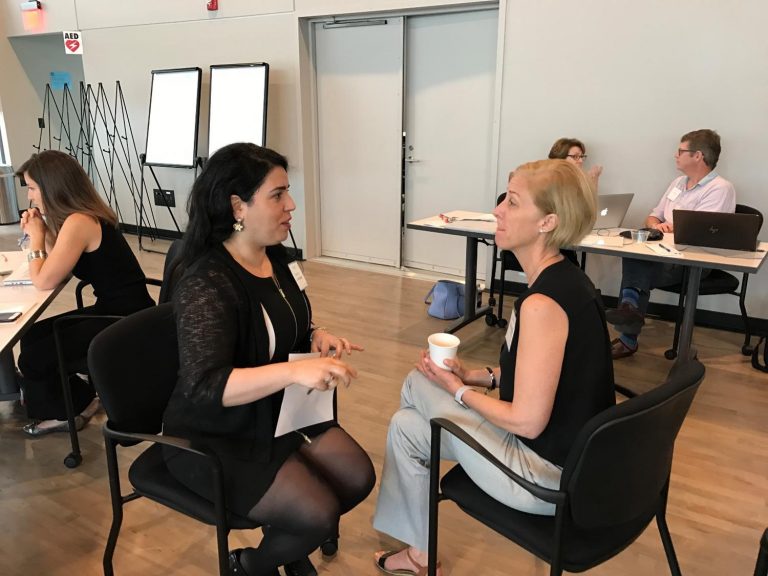
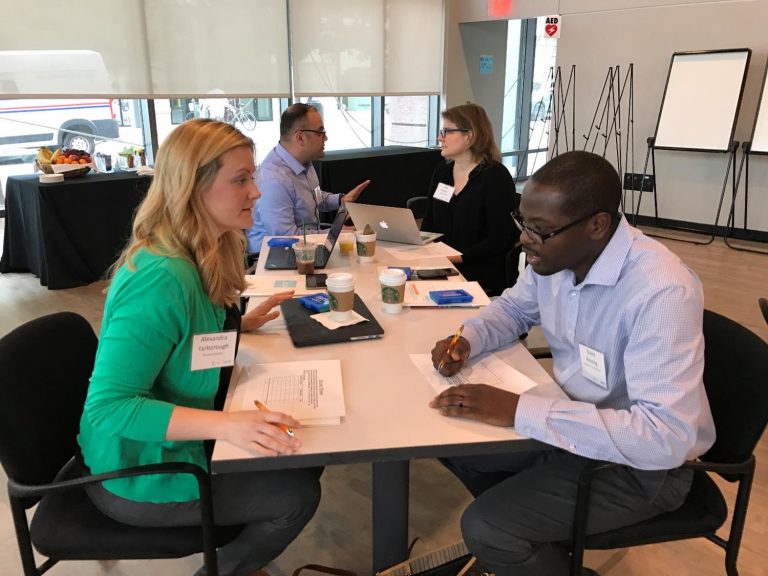
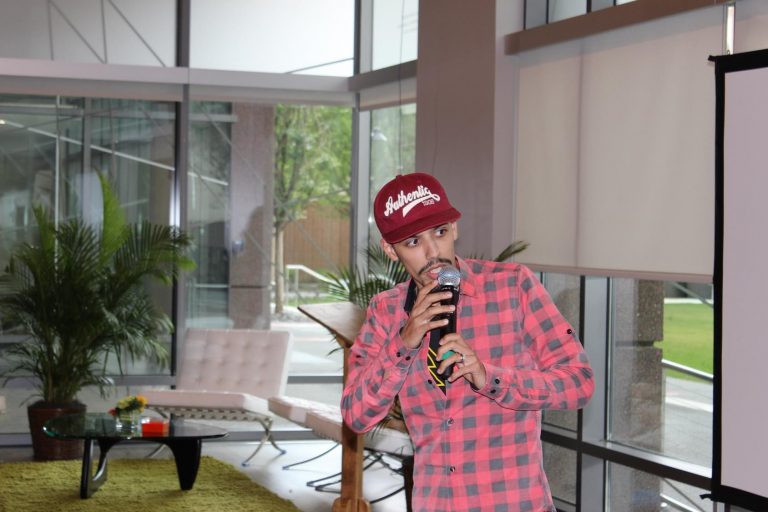
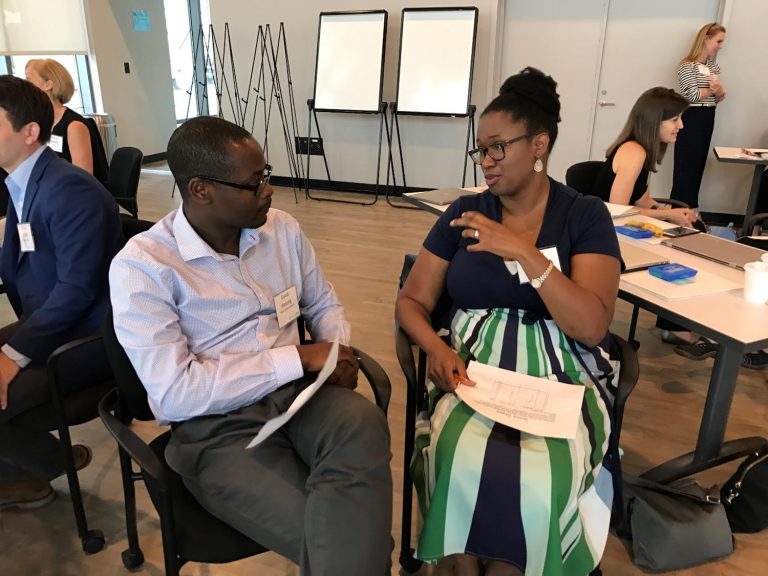
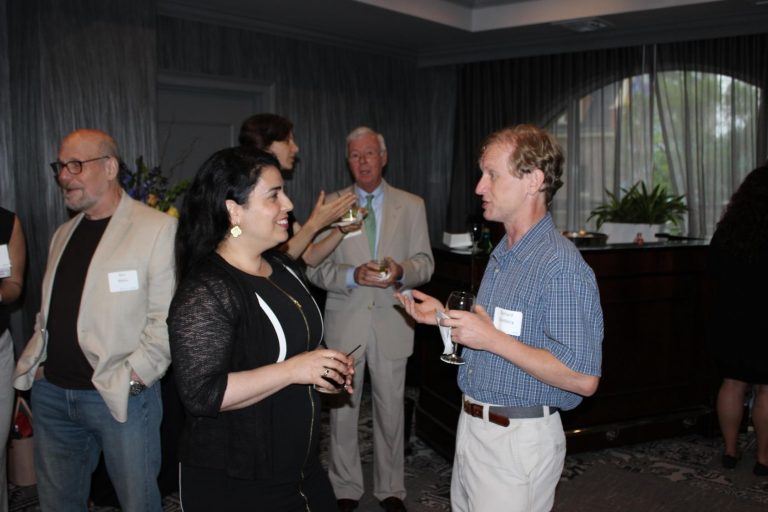
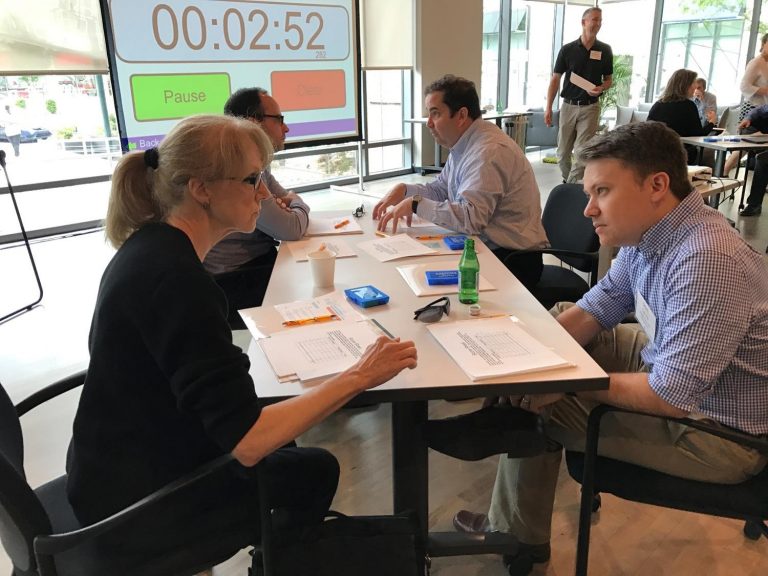
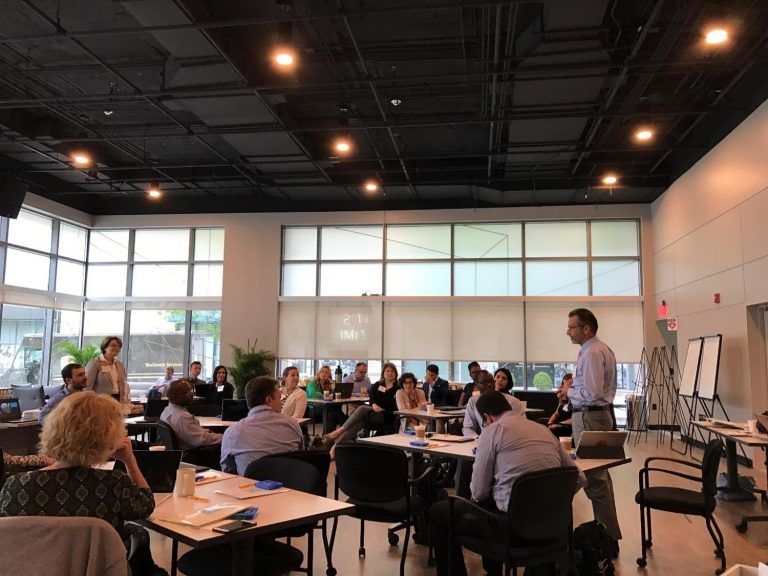
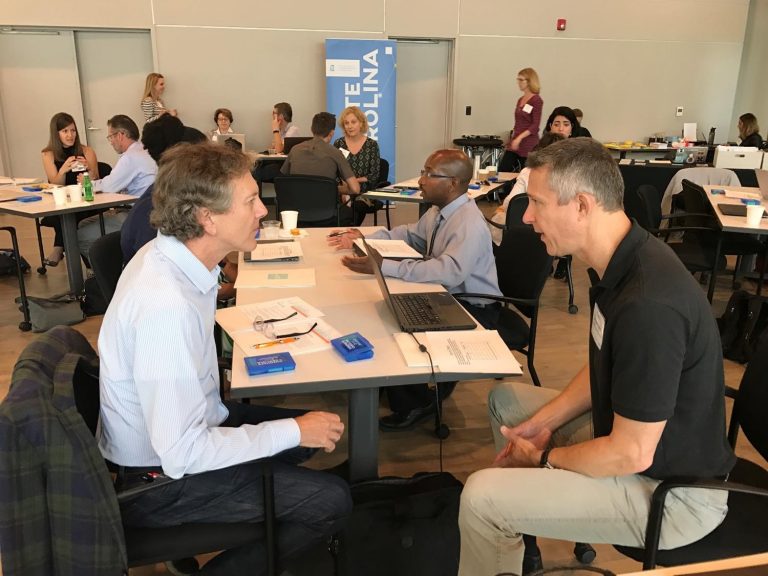
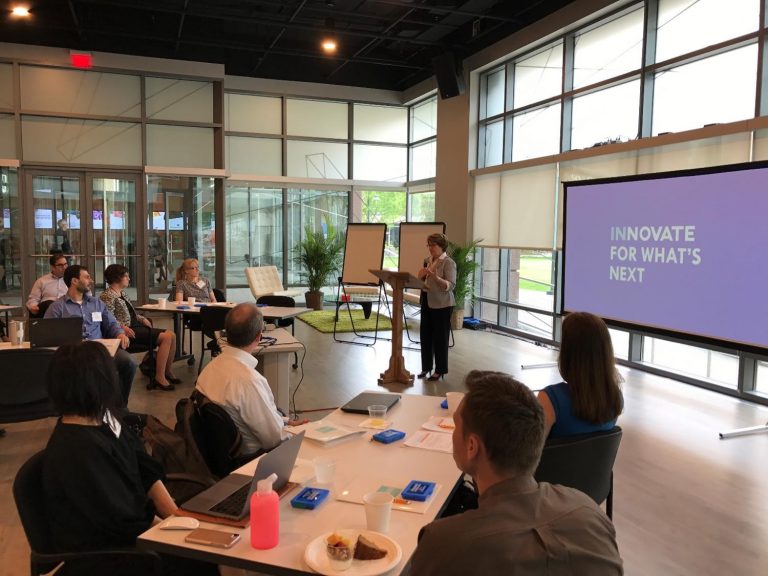
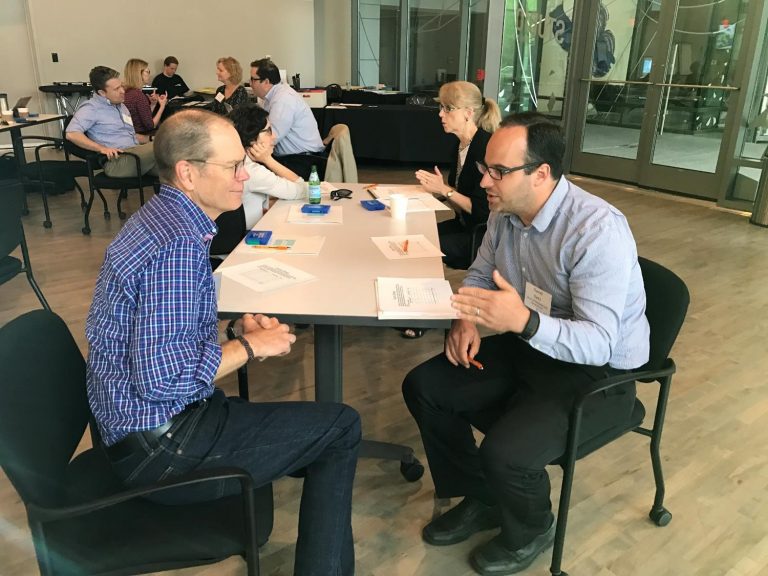
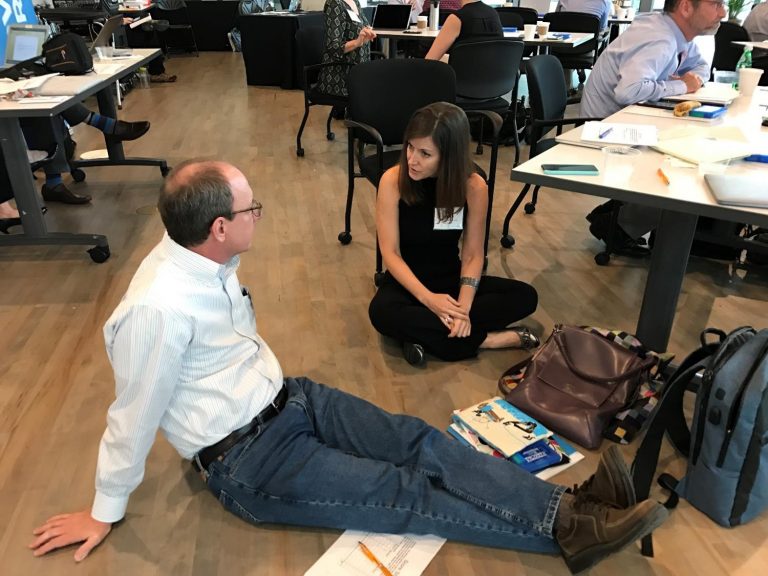
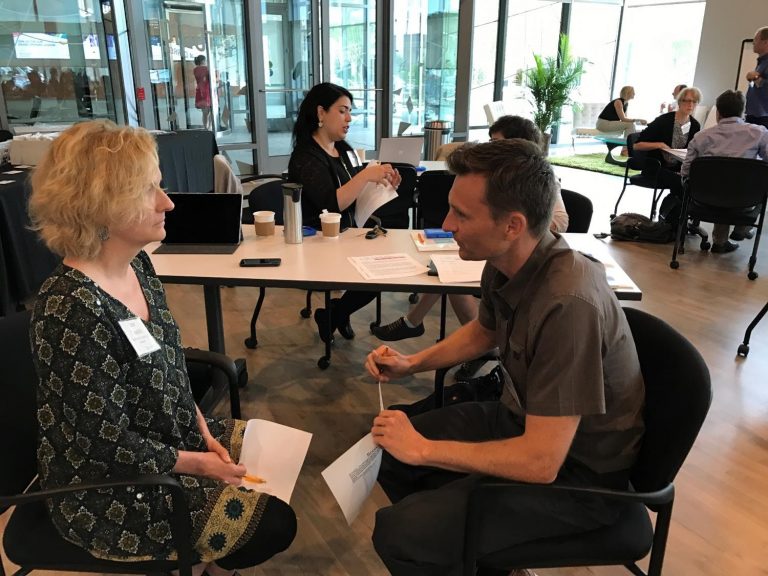
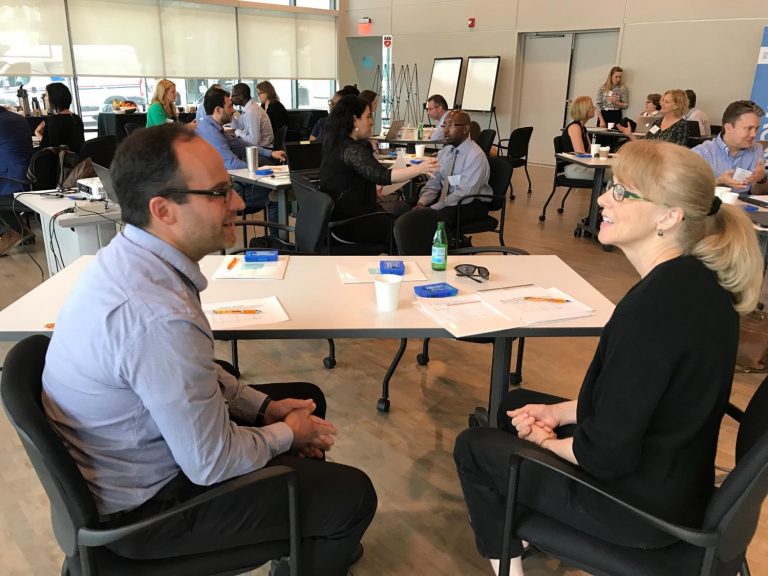
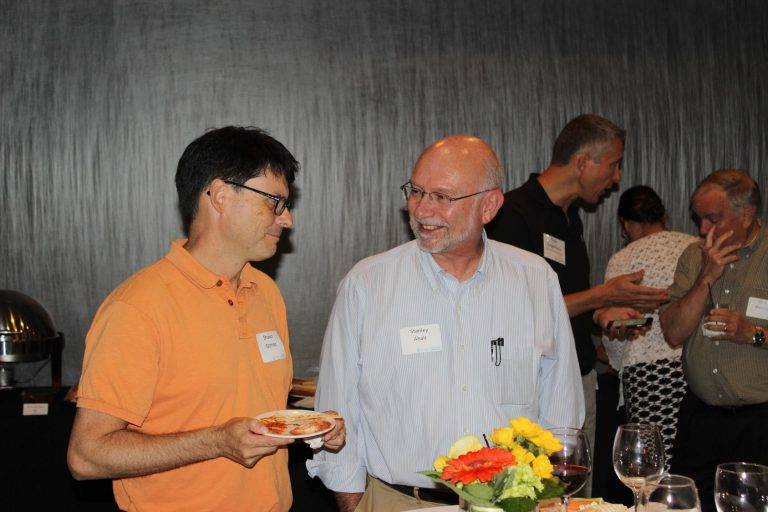
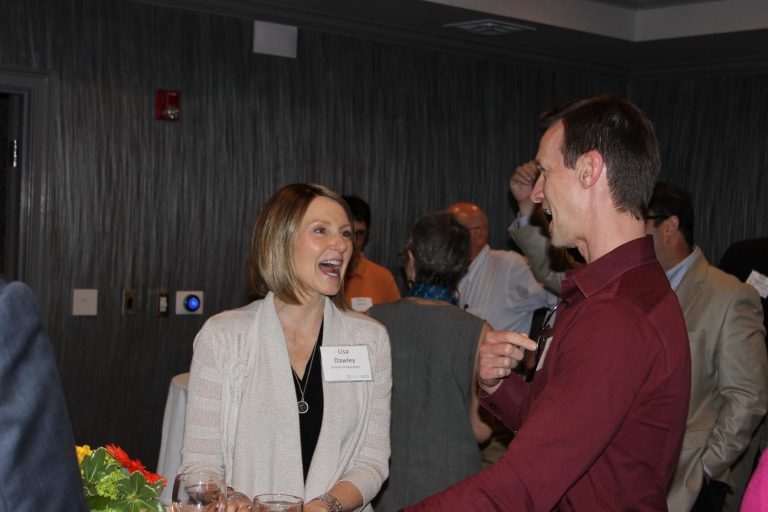
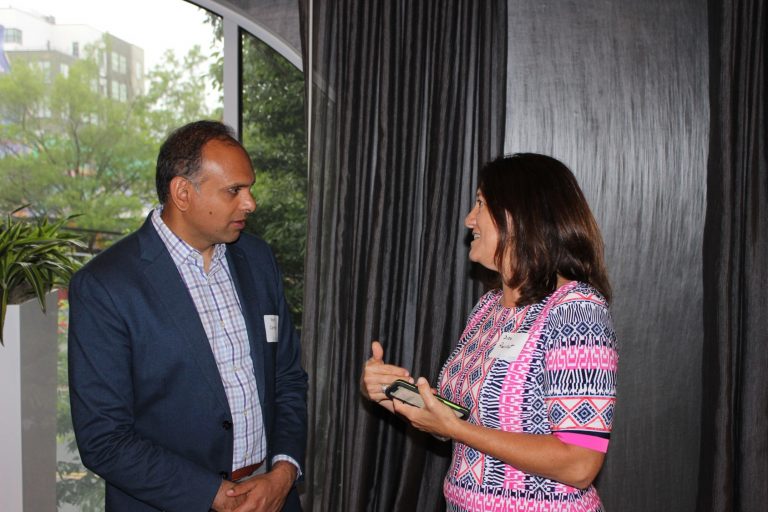
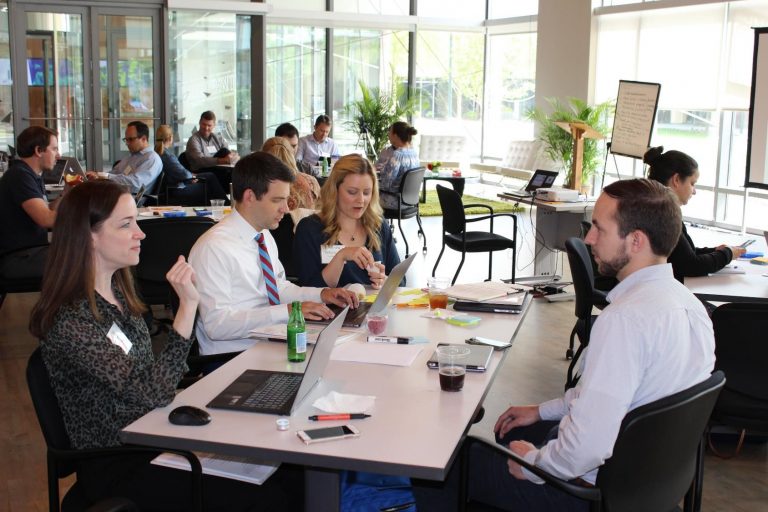
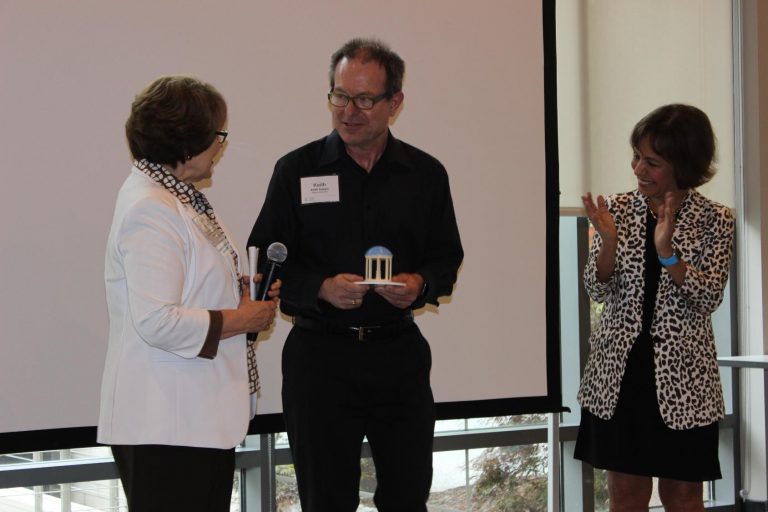
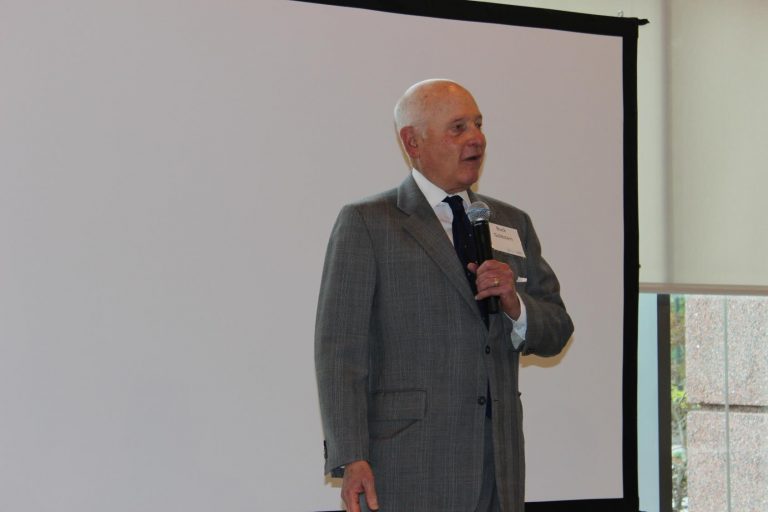
Echoing the idea that an entrepreneurial way of thinking can have diverse applications, David Ansong, an assistant professor of social work, sees opportunities to use lessons from the workshop to enhance his research. “The workshop opened my eyes to subtle, yet practical ways that as I could bring an entrepreneurial mindset to bear on my work as a social work researcher to address complex social problems, without necessarily turning every intervention into a business or detaching from the core values of the helping profession,” he said. Ansong is the principal investigator on a research project led by a team of social work faculty who received $75,000 via the 2017 C. Felix Harvey Award to help abused and neglected children find permanent homes with their grandparents and other relatives.
Rich Superfine, the Taylor-Williams Distinguished Professor of physics and astronomy and professor of applied physical sciences, shared how the entrepreneurial mindset is a key part of making a new dream at the University real: the new convergent science initiative and building plan at Carolina. The Institute for Convergent Science will bring basic and applied scientists from many disciplines together to pursue new discoveries and make an impact faster. And Superfine noted that a critical part of its success will be taking an entrepreneurial approach to building effective teams with individuals who can identify problems, teach one another, explore ideas together and launch solutions that get results.
He’s also seen the entrepreneurial movement also work on campus as the foundation for the applied physical sciences department, which he chairs. As the first new department in the sciences at UNC-Chapel Hill in 40 years, it was built on a new way of thinking. “This is an entrepreneurial venture within the University enterprise,” Superfine said of the department.
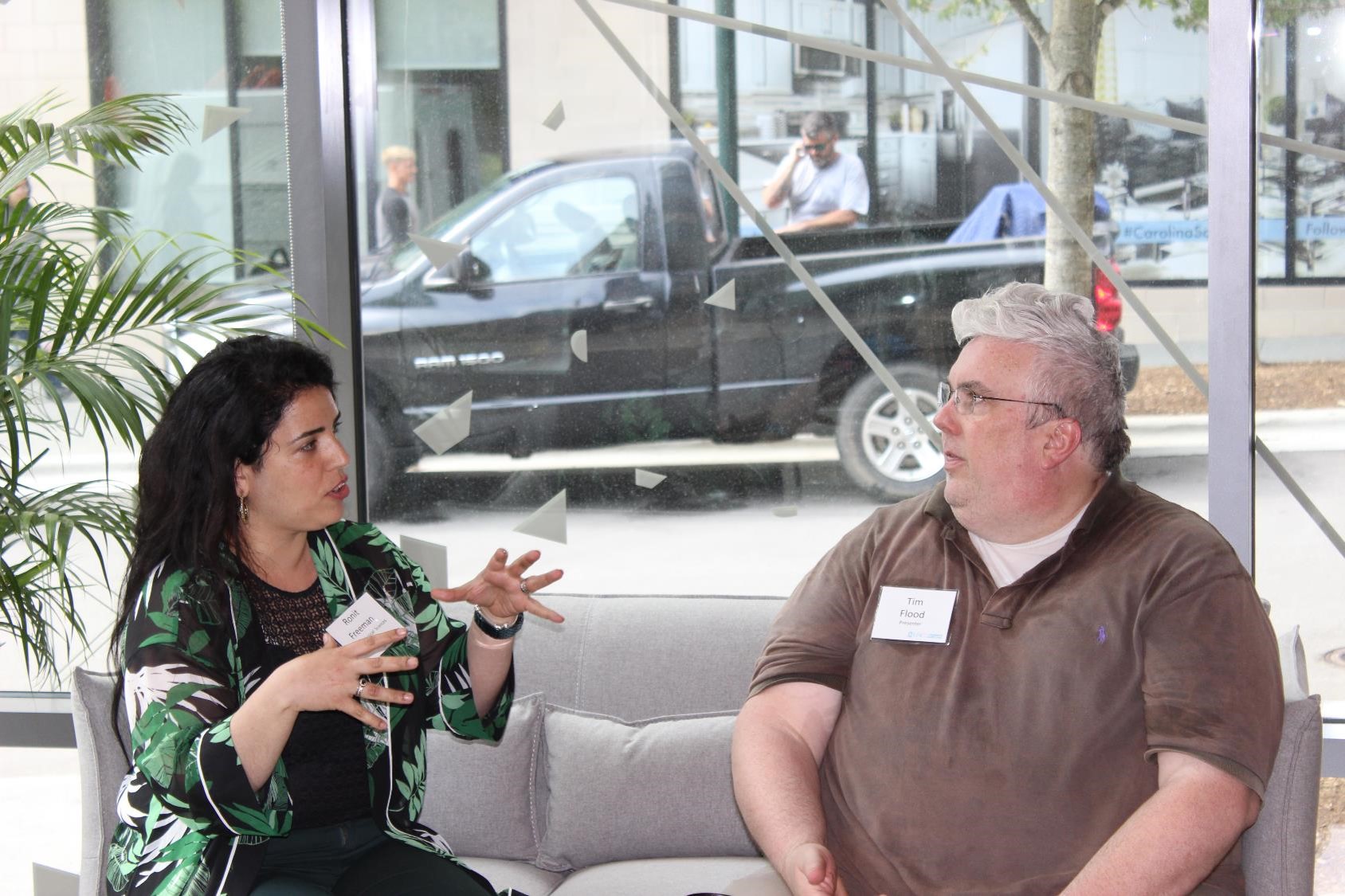
Whether you have an idea, an itch to start a venture, or you are just wondering if you can do it too, I highly encourage you to participate in the workshop. It will make you stop looking at everyone else and start learning how you can do it too and stand out amongst the crowd.
Ronit Fraiman
DEPARTMENT OF APPLIED PHYSICAL SCIENCES
Katz’s initial introduction into the world of entrepreneurship at the University happened when he agreed to co-teach a music entrepreneurship course when the previous instructor was unavailable. “I wasn’t an entrepreneur, and I didn’t have a background in economics. But I drew on what I did know,” said Katz. “And what I did know was based on my research into music and technology, and in particular, hip hop.” That resourceful perspective and his involvement in the course landed Katz a valuable invitation. “Perhaps, in part, because I was this accidental entrepreneurship teacher, I was invited to be in the workshop, which I remember being called entrepreneurship bootcamp at that time.”
Like most faculty, Katz didn’t show up to the Faculty Entrepreneurship Workshop with his ultimate idea in hand and ready to go. The majority arrive with inklings of projects, initiatives or businesses that they’d like to explore. And a small few come ready with innovative ideas or early ventures they’ve been working on for months or years. That’s exactly how the instructors and coaches who run the workshop want it – a group of diverse faculty thinkers whose varied ideas can all benefit from an entrepreneurial mindset and skillset.
“I have never considered my work to be entrepreneurial so, at first, I was unsure if the workshop would be applicable to me,” said Jessica Williams, assistant professor in the School of Nursing and a participant in the 2018 workshop. “This was one of the most valuable workshops in which I have participated, because it allowed me to view my scholarship from a different perspective and think about my work in new, innovative ways.”
During the two-and-a-half day workshop, faculty learn skills that they can apply to ideas they’re working on today or tomorrow, including how to:
>>Identify opportunities and develop solutions.
>>Map stakeholders.
>>Think like customers.
>>Research the market.
>>Develop a value proposition.
>>Build an effective team.
>>Make a pitch presentation.
>>Work ethically as an entrepreneur.
FACULTY VIEWPOINTS
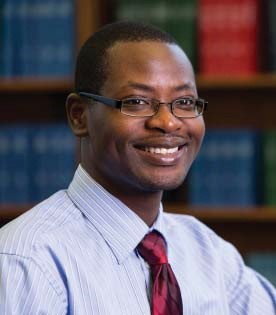
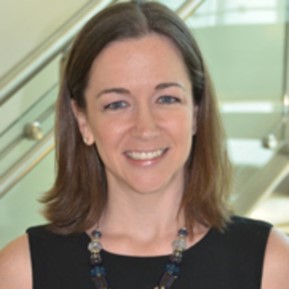
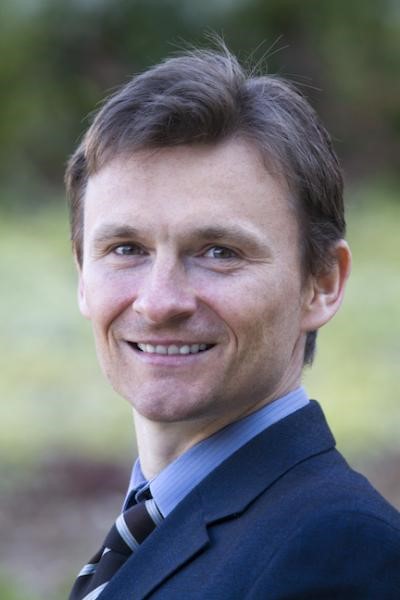
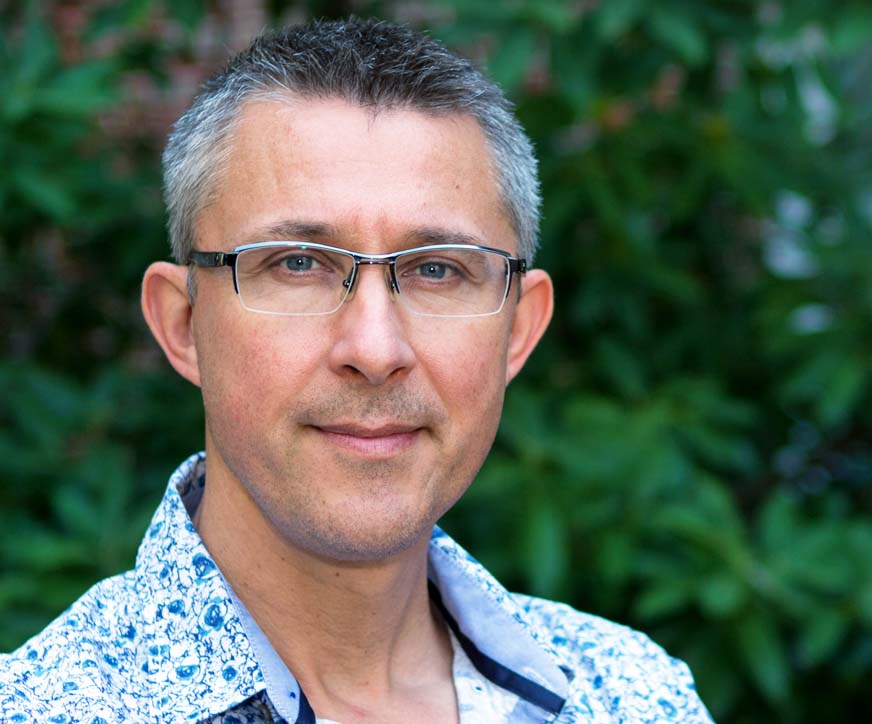

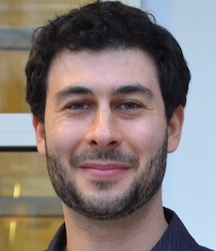

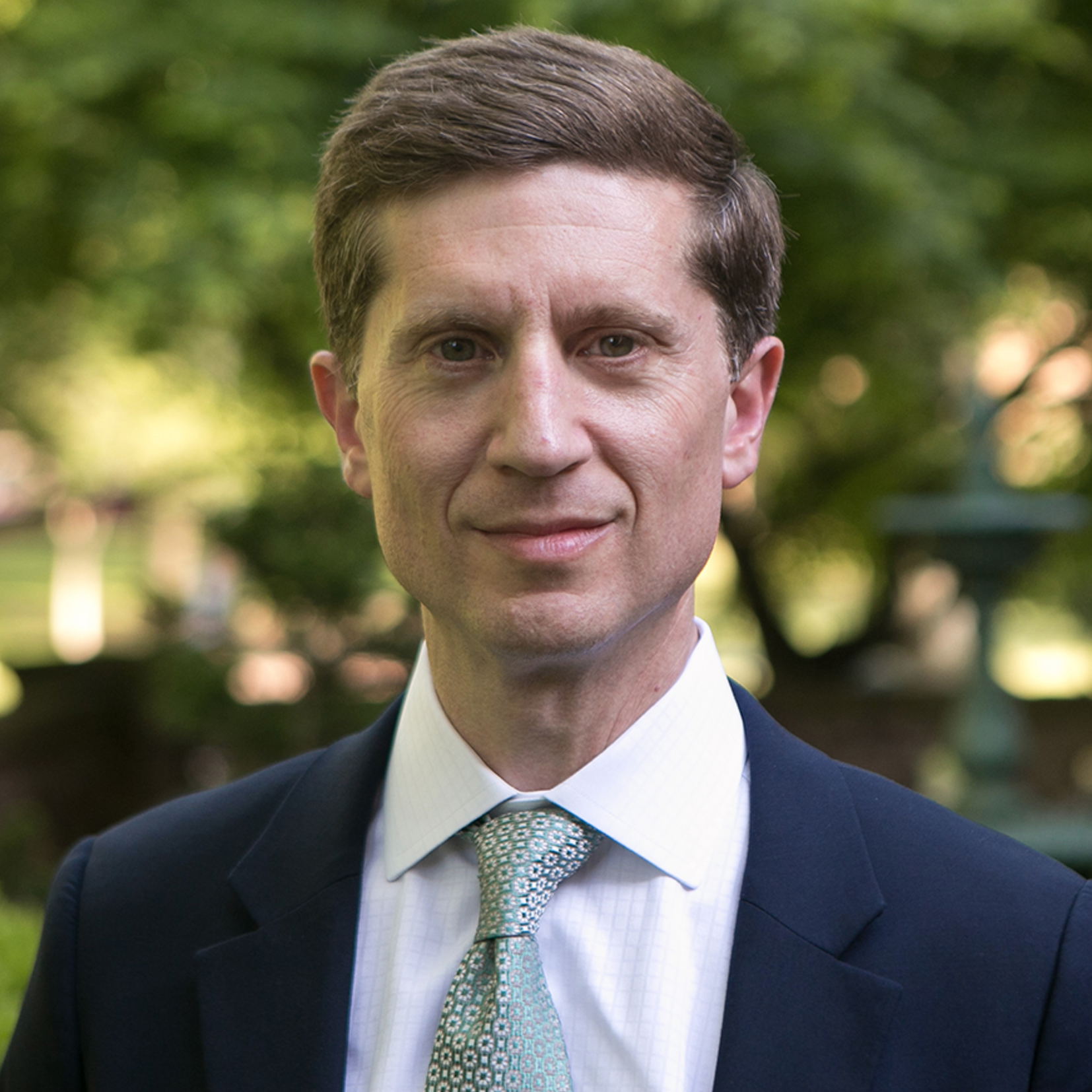





Faculty participants do have a baseline inclination for entrepreneurship. Each year, a select group of 20 to 30 faculty attend the workshop after receiving a nomination from their dean and an invitation from Chancellor Folt based on the promise they show toward entrepreneurial thinking. As of this year’s version of the workshop series, which was started in 2009 by Buck Goldstein, University Entrepreneur in Residence and professor of the practice in the economics department, more than 250 faculty have graduated from the program. Many of these workshop alumni used the knowledge and skills gained to accelerate innovation projects and launch new centers, nonprofits and startup ventures.
The 2018 rendition of the workshop honored both Goldstein and Keith Sawyer, the Morgan Distinguished Professor in Educational Innovations at the School of Education, who led the workshop from 2015 to 2017. It also featured new curricular elements that earned the enthusiasm of faculty participants like Lukasz Masur, assistant professor in the School of Information and Library Science and in the radiation oncology department at the School of Medicine.
PRESENTER PERSPECTIVES
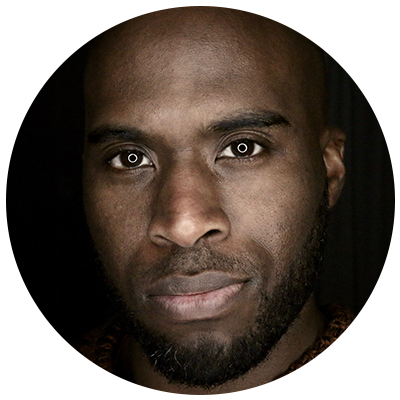
“First and foremost, I was inspired by the speakers and coaches and their personal stories describing their journeys into the entrepreneurship world,” said Masur. “I learned about perseverance, passion and trust. I also learned about dishonesty, lying and exhaustion. It was the blend of the good, the bad and the ugly that made this worship great.”
Michael Fisher, research assistant professor of environmental sciences and engineering, agrees.
“We all have to ‘pitch’ our ideas to achieve impact—the workshop was a high-value opportunity to focus on developing the relevant skills,” he said. “It’s a great opportunity to meet and engage with innovative and productive faculty across all disciplines and departments at UNC.”
If participants are lucky, there might even be a pop-up hip-hop concert involved, quips Fisher, alluding to the fact that Katz showed up with a DJ, rappers and dancers from Next Level. These performers added a new level of energy to the final pitch sessions, which featured the top six faculty presentations as voted on by a panel of judges from Carolina, NC State University, NC Central University and the local entrepreneurial community.
“You have to be wack before you can be dope,” said Katz, quoting J Live, a rapper, DJ and Next Level alumnus, while also drawing upon hip-hop lingo to describe the workshop environment. “This is a safe space for you to be wack. This a place for you to try things out, fail and test things.”
Summed up by Masur in non hip-hop vernacular, “If you’re looking for inspiration, knowledge, advice and a safe environment to practice your entrepreneurial spirit, this is the place to do it.”
2018 FACULTY PITCH FINALISTS

MICHAEL FISHER
GILLINGS SCHOOL OF GLOBAL PUBLIC HEALTH
Rapid Diagnostic for Antibiotic Resistance
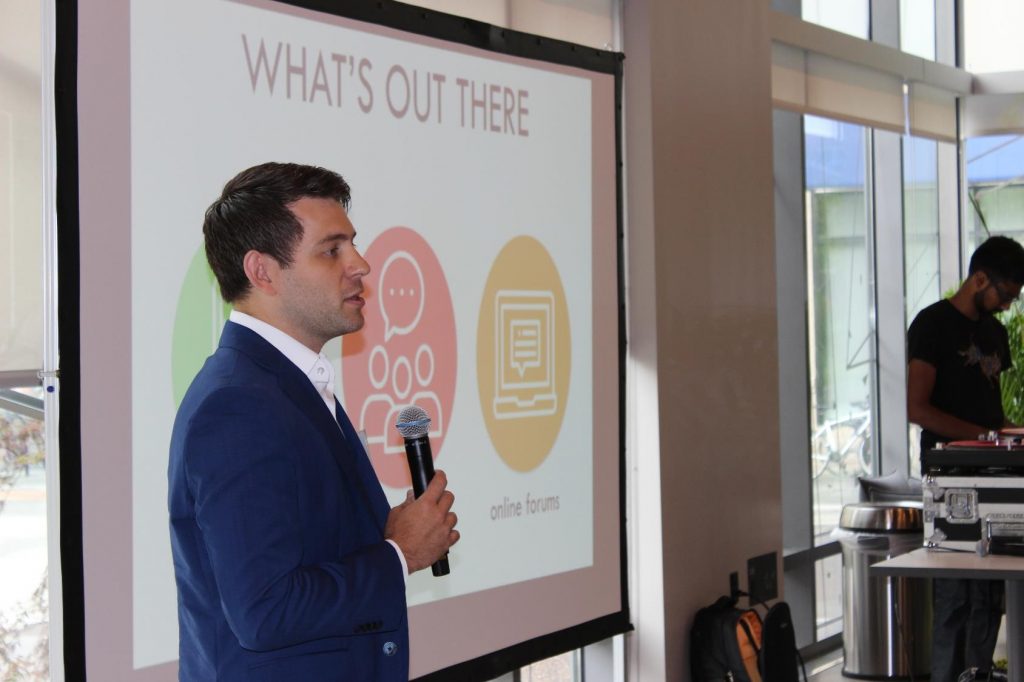
JONATHAN RESIDE
SCHOOL OF DENTISTRY
ARC: Alumni Residency Connections

MARK TOLES
SCHOOL OF NURSING
Connect-Home Collaborative: Transitional Care for Frail, Older Adults
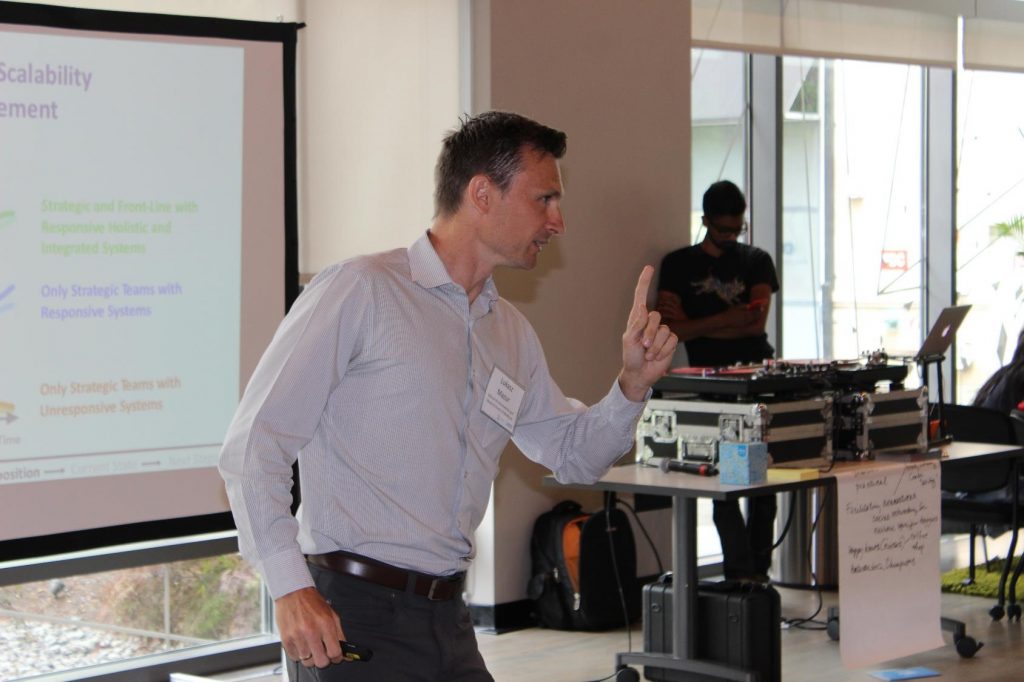
LUCASZ MASUR
SCHOOL OF MEDICINE, SCHOOL OF INFORMATION AND LIBRARY SCIENCE
Communify Health (Health Care Process Improvement)
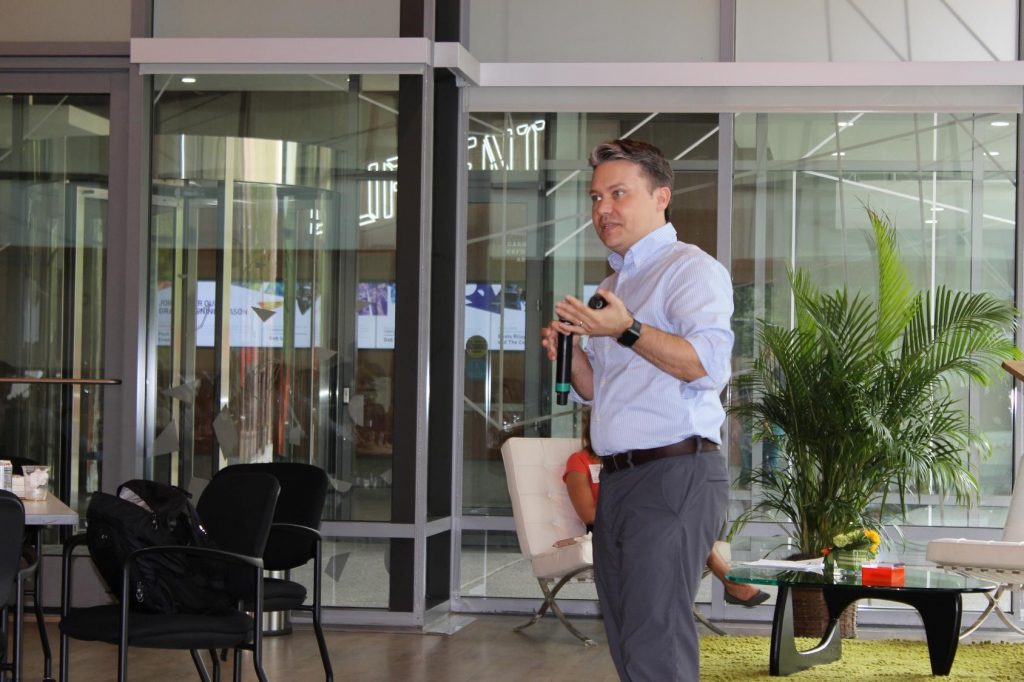
SEAN SYLVIA
GILLINGS SCHOOL OF GLOBAL PUBLIC HEALTH
Perfect Parenting Centers
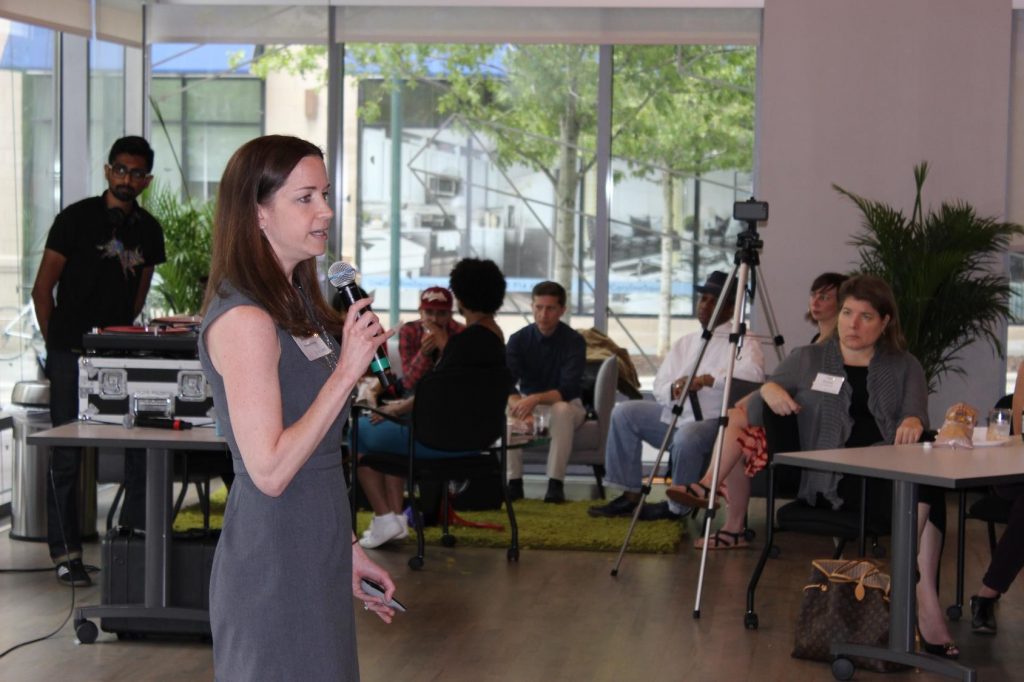

 | UNC-CH
| UNC-CH
